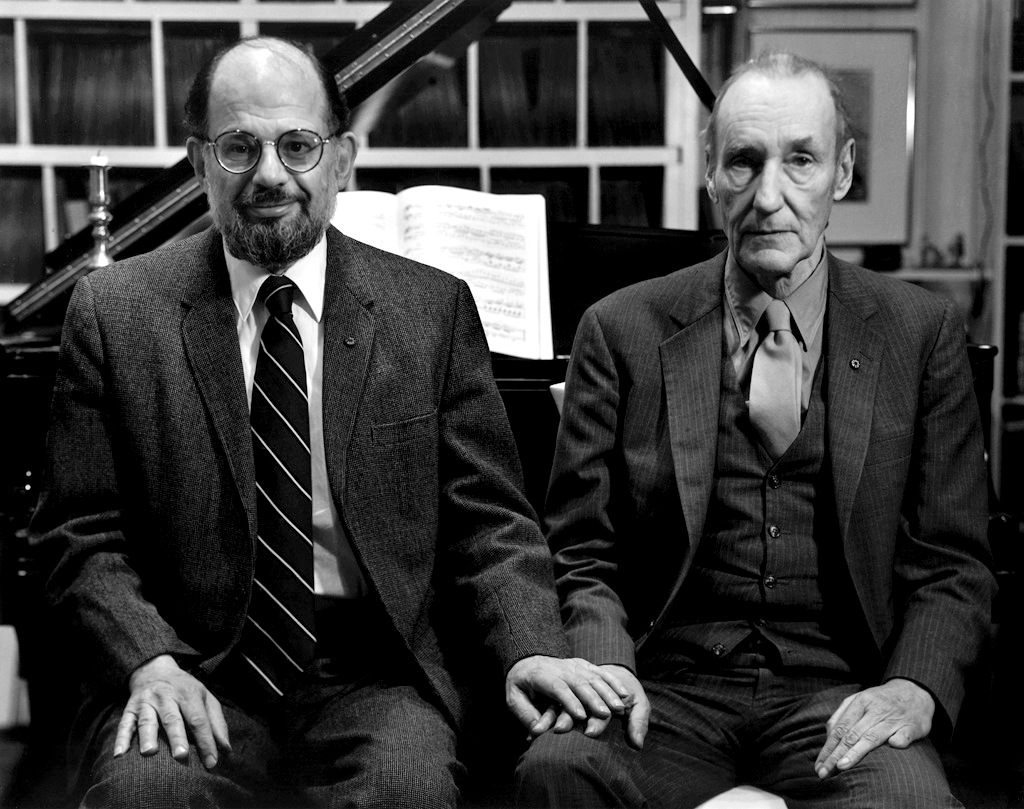In 1992, five years before his death, Allen Ginsberg visited William S. Burroughs’s home in Lawrence, Kansas. Over the course of four days, the two Beats chatted about everything from shamanism to punk rock, from Jane Bowles to David Cronenberg. Don’t Hide the Madness: William S. Burroughs in Conversation with Allen Ginsberg, edited by Steven Taylor and published this week by Three Rooms Press, collects for the first time this intimate, sprawling exchange. In the excerpt printed below, Burroughs and Ginsberg discuss the inspiration behind the infamous Naked Lunch chapter “The Market.”
GINSBERG
One thing I remember, actually, at some point or other, you and Lucien and Kerouac got me on a couch and took down my pants.
BURROUGHS
I don’t remember that.
GINSBERG
[laughing] ’Cause I … It was thrilling, and I got a hard-on, I remember. I was ashamed. Because it was Lucien there.
BURROUGHS
Should be.
GINSBERG
On the couch, in front of the window.
BURROUGHS
Yes. I know where the couch was. Typical railroad apartment, where they usually had the bathtub in the kitchen.
GINSBERG
Yeah, I had one there.
BURROUGHS
Typical slum.
GINSBERG
Actually, I ran into a girl who’s living there now who keeps inviting me to come back and see it.
BURROUGHS
That’d be interesting.
GINSBERG
A friend of the rock group Sonic Youth that plays with you—
BURROUGHS
Who?
GINSBERG
Sonic Youth is a rock group.
BURROUGHS
Yes.
GINSBERG
She’s one of the singer friends of theirs.
BURROUGHS
Yes.
GINSBERG
And she’s now living in my old apartment. But one thing I remember very clearly is the origin of “The Market” or Interzone and market …
BURROUGHS
Yes.
GINSBERG
… fantasy with you and … looking out the window, and you saw a neighbor lady lean out with a very intense expression and pull in the laundry and the laundry line. You remember that?
BURROUGHS
No. But I know now about those laundry lines.
GINSBERG
And you saw the laundry lines and then … all the fire escapes, and from that rose a routine about balconies crisscrossing in the void and …
BURROUGHS
Um hm yeah yeah um hm …
GINSBERG
And lines of ropes connecting buildings …
BURROUGHS
Exactly …
GINSBERG
I remember you looked out of the window and then were impressed by the expression of the woman’s face, ’cause … if you could look up a minute … she leaned out like that only, you know, with a great intensity of expression and extending her body out pulling … with her hand out grasping.
BURROUGHS
Grasping. I remember.
GINSBERG
You were imitating her avaricious gesture, grasping and pulling the laundry line, and from that was the seed of “The Market.”
BURROUGHS
Yeah.
GINSBERG
Now do you have any visual memory of that outside of the window at all, the laundry lines?
BURROUGHS
No, but I know I can see … the laundry lines are a feature of those apartments, and their laundry’s on the balcony. You’ll find that in … balcony … in sort of, slums all over the world.
GINSBERG
Yeah, Naples.
BURROUGHS
Naples. I was thinking of that. Naples and Marseille and all kinds of places.
GINSBERG
Actually, that photograph of Kerouac that I have …
BURROUGHS
Yeah.
GINSBERG
You can actually see the laundry line … those specific laundry lines. Did you ever notice that in that photo?
BURROUGHS
I think so, yeah.
GINSBERG
It takes a very good printer to get them because it was very faint … sky.
Read William S. Burroughs’s and Allen Ginsberg’s Writers at Work interviews.
Excerpted from Don’t Hide the Madness: William S. Burroughs in Conversation with Allen Ginsberg, edited by Steven Taylor. Reprinted with the permission of Three Rooms Press.
from The Paris Review https://ift.tt/2J01LJH

Comments
Post a Comment